Politics
Dubai police foil deadly pill smuggling bid


Dubai Police have foiled a major drug smuggling attempt, seizing narcotics valued at more than Rs340 million and arresting three suspects in a high-level anti-narcotics operation.
Officials said the operation, codenamed “Toxic Buttons”, led to the arrest of two Arab nationals and one Asian.
Police confiscated 89,760 Captagon tablets, a banned stimulant, that had been cleverly concealed inside clothing buttons in an attempt to evade detection.
The drugs, with an estimated street value of AED4.48 million (approximately Rs340 million), were reportedly intended for smuggling into a neighbouring country.
Experts warn that Captagon, often referred to as the “poor man’s cocaine,” is a dangerous stimulant that temporarily boosts energy and alertness but causes long-term harm to the brain, heart, and nervous system.
Politics
Key Iranian figures martyred in US-Israel military strikes
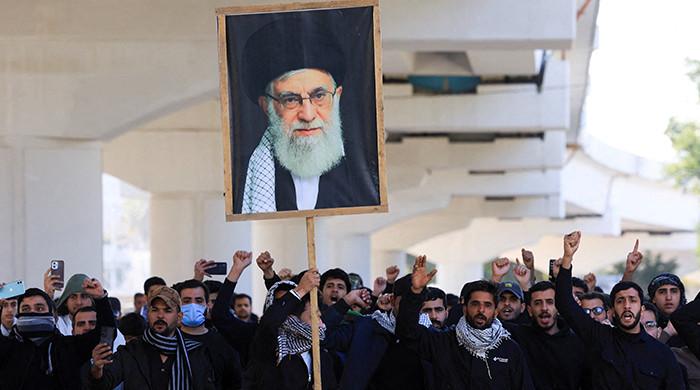
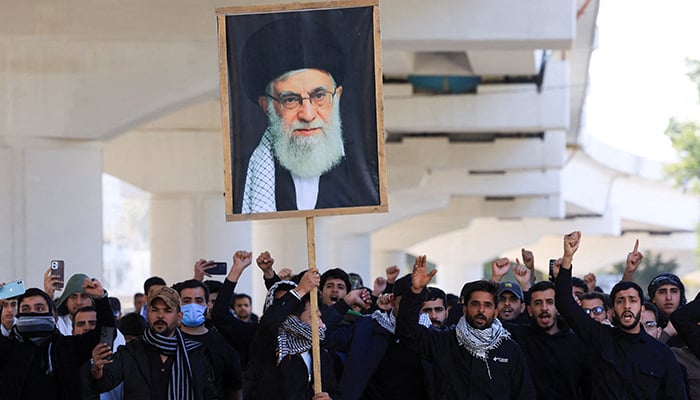
A number of Iranian senior leaders, including Supreme Leader Ayatollah Ali Khamenei, have embraced martyrdom in the “unprovoked and unwarranted” airstrikes by Israel and the United States.
As crowds gathered in Tehran, explosions rang out, and the Israeli military announced that it was again striking targets in the heart of the city — as more blasts were heard in Jerusalem, Riyadh, Dubai, Doha and Manama.
Iran’s President Masoud Pezeshkian declared Khamenei’s assassination a “declaration of war against Muslims” and warned: “Iran considers it its legitimate duty and right to avenge the perpetrators and masterminds of this historic crime.”
Iranian state media have confirmed the killing of several senior figures:
1. Ayatollah Ali Khamenei, supreme leader of Iran
2. Ali Shamkhani, representative of the Supreme Leader in the Supreme Defence Council
3. General Abdolrahim Mousavi, Iran’s Armed Forces chief of staff
4. Major General Mohammad Pakpour, commander-in-chief of the Islamic Revolution Guards Corps (IRGC)
5. Aziz Nasirzadeh, Minister of Defence
6. Gholamreza Rezaian, police intelligence chief of Iran
Separately, the daughter, son-in-law, and granddaughter of Ali Khamenei also embraced martyrdom in the US and Israeli airstrikes.
Politics
US-Iran conflict disrupts thousands of flights as travel chaos deepens
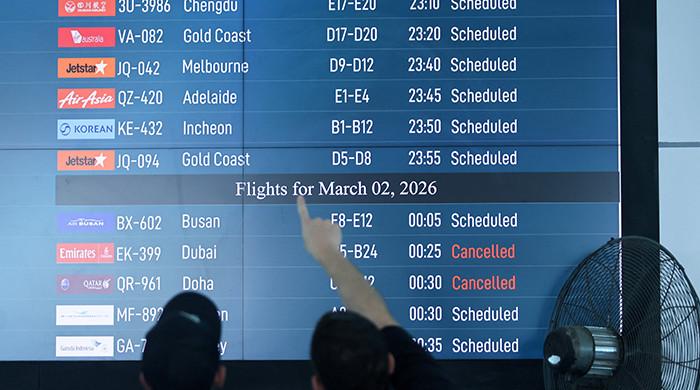
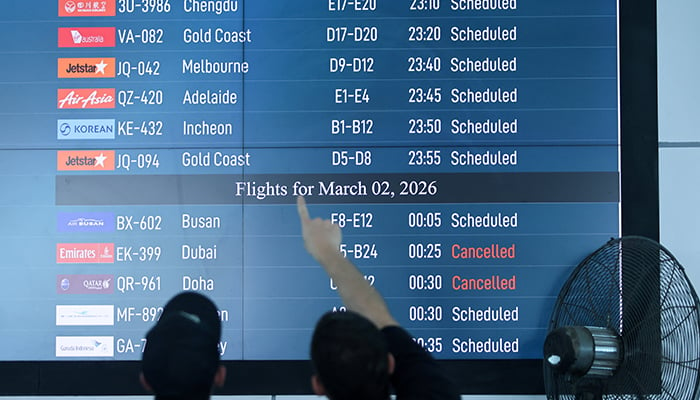
- Middle Eastern airport hubs remain closed or restricted.
- Airlines reroute or cancel flights, affecting global schedules.
- Risk of prolonged disruption due to regional conflicts.
DUBAI: Global air travel remained heavily disrupted on Sunday as continued air strikes kept major Middle Eastern airports, including Dubai, the world’s busiest international hub, closed in one of the sharpest aviation shocks in recent years.
Key transit airports including Dubai and Abu Dhabi in the UAE, and Doha in Qatar, were shut or severely restricted as much of the region’s airspace remained closed, with the Gulf grappling with uncertainty after U.S. and Israeli strikes killed Iranian Supreme Leader Ayatollah Ali Khamenei on Saturday.
Israel said it launched another wave of strikes on Iran on Sunday, while loud blasts were heard for a second day near Dubai and over Doha, after Iran launched retaliatory air attacks on the neighbouring Gulf states.
Dubai International Airport sustained damage during Iran’s attacks, while airports in Abu Dhabi and Kuwait were also hit. Thousands of flights have been affected across the Middle East since the U.S. first launched attacks on Iran on Saturday, according to data on FlightAware, a flight tracking platform.
Ripple effects
The airport closures have rippled far beyond the Middle East. Dubai and neighbouring Doha sit at the crossroads of east-west air travel, funnelling long-haul traffic between Europe and Asia through tightly scheduled networks of connecting flights.
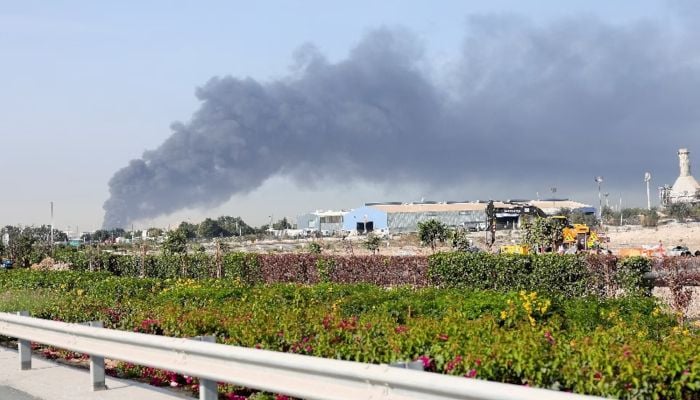
With those hubs idle, aircraft and crews remained stranded out of position, disrupting airline schedules worldwide.
“It’s the sheer volume of people and the complexity,” said UK-based aviation analyst John Strickland.
“It is not only customers, it is the crews and aircraft all over place.”
Airlines across Europe, Asia and the Middle East cancelled or rerouted flights to avoid closed or restricted airspace, lengthening journeys and driving up fuel costs. The disruption has been intensified by the loss of Iranian and Iraqi overflight routes, which had grown more important since the Russia-Ukraine war forced airlines to avoid both countries’ airspace.
The Middle East airspace closures were squeezing airlines into narrower corridors, with fighting between Pakistan and Afghanistan adding a further risk, said Ian Petchenik, communications director at Flightradar24.
“The risk of protracted disruption is the main concern from a commercial aviation perspective,” Petchenik said.
“Any escalation in the conflict between Pakistan and Afghanistan that results in the closure of airspace would have drastic consequences for travel between Europe and Asia.”
Middle East flights halted
Airspace over Iran, Iraq, Kuwait, Israel, Bahrain, the UAE and Qatar remained virtually empty, maps by flight-tracking service Flightradar24 showed, and air strikes kept major Middle Eastern airports, including Dubai, Abu Dhabi and Doha shut or severely restricted.
Below is the latest on flights listed by airline in alphabetical order:
Aegean Airlines
Greece’s largest carrier suspended flights to and from Tel Aviv in Israel, Beirut in Lebanon and Erbil in Iraq until March 2.
Air Astana
The group cancelled all flights to the Middle East through March 3.
Air Canada
The airline said it has cancelled flights from Canada to Israel until March 8 and flights to Dubai until March 3.
Air Europa
The Spanish airline cancelled its flights to Tel Aviv on Sunday and Monday and is monitoring the situation to assess operations from Tuesday.
Air France KLM
Air France cancelled flights to and from Tel Aviv in Israel and Beirut in Lebanon for Saturday.
Its Dutch arm KLM said late on Saturday that this weekend’s flights to and from Dubai, Dammam and Riyadh have been cancelled. It had already brought forward suspension of its Amsterdam–Tel Aviv service to Saturday.
Air India
The carrier cancelled flights scheduled for Sunday from Delhi, Mumbai and Amritsar to London, New York, Chicago, Toronto, Frankfurt and Paris. It added that more flights to London, Birmingham, Amsterdam, Zurich, Milan, Vienna, Copenhagen and Frankfurt had been cancelled.
Azerbaijan Airlines
The airline has suspended flights to and from Dubai, Doha, Jeddah and Tel Aviv.
British Airways
IAG-owned British Airways said it has cancelled flights to Tel Aviv and Bahrain until March 3 and its flight to Amman on Saturday.
Cathay Pacific
Hong Kong’s Cathay Group, parent of Cathay Pacific Airways, suspended operations in the region, affecting passenger flights to and from Dubai and Riyadh, as well as freighter service at Al Maktoum airport. That is Dubai’s second airport after Dubai International Airport, the primary hub that handles most passenger traffic.
Emirates
Owing to multiple regional airspace closures, Emirates has suspended all operations to and from Dubai until 3pm UAE time on March 2.
Etihad
The UAE’s Etihad said flights scheduled to depart Abu Dhabi were suspended until 2pm local time on Sunday.
Flydubai
The airline said it had temporarily suspended all flights to and from Dubai until 3pm local time on Sunday.
Iberia Express
The Spanish airline owned by Iberia Group cancelled a flight to Tel Aviv scheduled for Saturday at 5pm local time.
IndiGo
IndiGo, India’s biggest airline, said it had extended a temporary suspension of select international flights using Middle East airspace until Monday.
ITA Airways
ITA Airways suspended flights to and from Tel Aviv and said it would not use the airspace of Israel, Lebanon, Jordan, Iraq and Iran until March 7. Flights to and from Dubai were suspended until March 1.
Japan Airlines
Japan Airlines cancelled a flight on Saturday from Tokyo Haneda to Doha as well as a return flight on March 1, Nikkei said.
LOT Polish Airlines
The airline suspended flights to Tel Aviv until March 15 and cancelled flights to Dubai and Riyadh until March 2.
Lufthansa
The German airline flights to and from Tel Aviv in Israel, Beirut in Lebanon and Oman until March 7 and flights to and from Dubai on Saturday and Sunday.
It also said it would not fly through Israeli, Lebanese, Jordanian, Iraqi and Iranian airspace until March 7.
Norwegian Air
The Nordic airline suspended all flights to and from Dubai until March 4, a company spokesperson said. The carrier did not suspend flights to Tel Aviv in Israel or Beirut in Lebanon because these destinations are only active in summer, he added.
Pegasus Airlines
The airline said that flights to Iran, Iraq, Jordan and Lebanon were cancelled up to and including March 2.
Qatar Airways
The airline said flights remain temporarily suspended owing to the closure of the Qatari airspace. It will provide a further update by 9am local time on Monday.
Scandinavian Airlines
The airline told Reuters it had suspended its flight to Tel Aviv from Copenhagen on Saturday. No decision had been made regarding flights on later dates.
Turkish Airlines
The airline cancelled flights to Qatar, Kuwait, Bahrain, the United Arab Emirates and Oman on Saturday and flights to Lebanon, Syria, Iraq, Iran and Jordan until March 2.
Virgin Atlantic
Virgin Atlantic said it will temporarily avoid Iraqi airspace, resulting in some pre-planned rerouting of flights and has cancelled its VS400 service from London Heathrow to Dubai on Saturday.
Wizz Air
The Hungarian carrier halted flights to and from Israel, Dubai, Abu Dhabi and Amman with immediate effect until March 7.
It added that operational decisions would continue to be reviewed and the flight schedule could be adjusted as the situation evolves.
Politics
CIA intel guided strikes that martyred Iran supreme leader: NYT
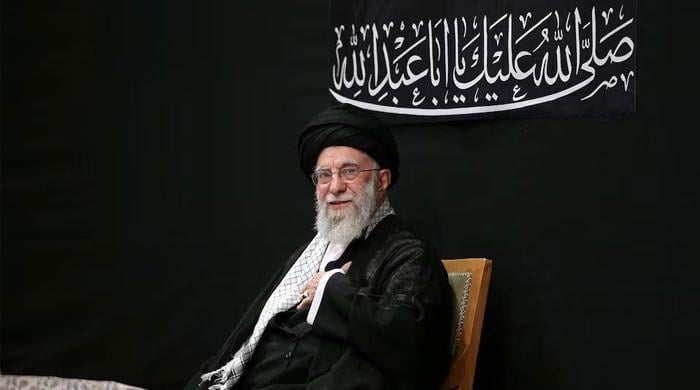
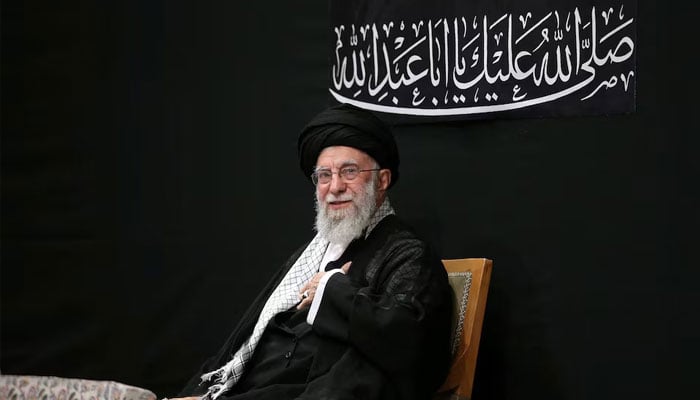
CIA intelligence indicating Ayatollah Ali Khamenei would attend a meeting of top Iranian officials helped guide strikes in a US and Israeli attack that killed Iran’s supreme leader, the New York Times reported Sunday.
Khamenei was martyred in the strikes on capital Tehran, Iranian state media confirmed on Sunday, after the US and Israel vowed to seek regime change in the Islamic republic.
The American intelligence agency had been tracking Khamenei for months, the Times reported, citing people familiar with the operation, and learned that a meeting of top Iranian officials was set for Saturday morning at a leadership compound in the heart of Tehran.
Washington and Tel Aviv originally planned to launch strikes on Iran at night, but officials adjusted the plan based on the CIA intelligence, according to the Times.
The US gave the information to Israel, who planned to carry out the attack on Iranian leadership, the newspaper reported.
The operation began about 6am in Israel (0400 GMT), and long-range missiles struck the compound about 9:40am, the Times said.
Senior Iranian national security officials were in one building at the compound, and Khamenei was in a nearby building.
In addition to Khamenei, two top Iranian military leaders were killed in the bombing: the chief of the Revolutionary Guards, General Mohammad Pakpour, and another top security adviser, Ali Shamkhani, Iran’s judiciary confirmed.
Iran has since retaliated, with reported strikes across the Gulf, including in the Emirati capital Abu Dhabi and near regional US military bases, as the threat of a larger regional conflict grows.
US President Donald Trump, meanwhile, has said the American military’s bombing will continue “as long as necessary.”
-

 Business1 week ago
Business1 week agoUS Top Court Blocks Trump’s Tariff Orders: Does It Mean Zero Duties For Indian Goods?
-

 Fashion1 week ago
Fashion1 week agoICE cotton ticks higher on crude oil rally
-

 Entertainment1 week ago
Entertainment1 week agoThe White Lotus” creator Mike White reflects on his time on “Survivor
-

 Politics1 week ago
Politics1 week agoPakistan carries out precision strikes on seven militant hideouts in Afghanistan
-

 Business1 week ago
Business1 week agoEye-popping rise in one year: Betting on just gold and silver for long-term wealth creation? Think again! – The Times of India
-

 Sports1 week ago
Sports1 week agoBrett Favre blasts NFL for no longer appealing to ‘true’ fans: ‘There’s been a slight shift’
-

 Entertainment1 week ago
Entertainment1 week agoViral monkey Punch makes IKEA toy global sensation: Here’s what it costs
-

 Sports1 week ago
Sports1 week agoKansas’ Darryn Peterson misses most of 2nd half with cramping






